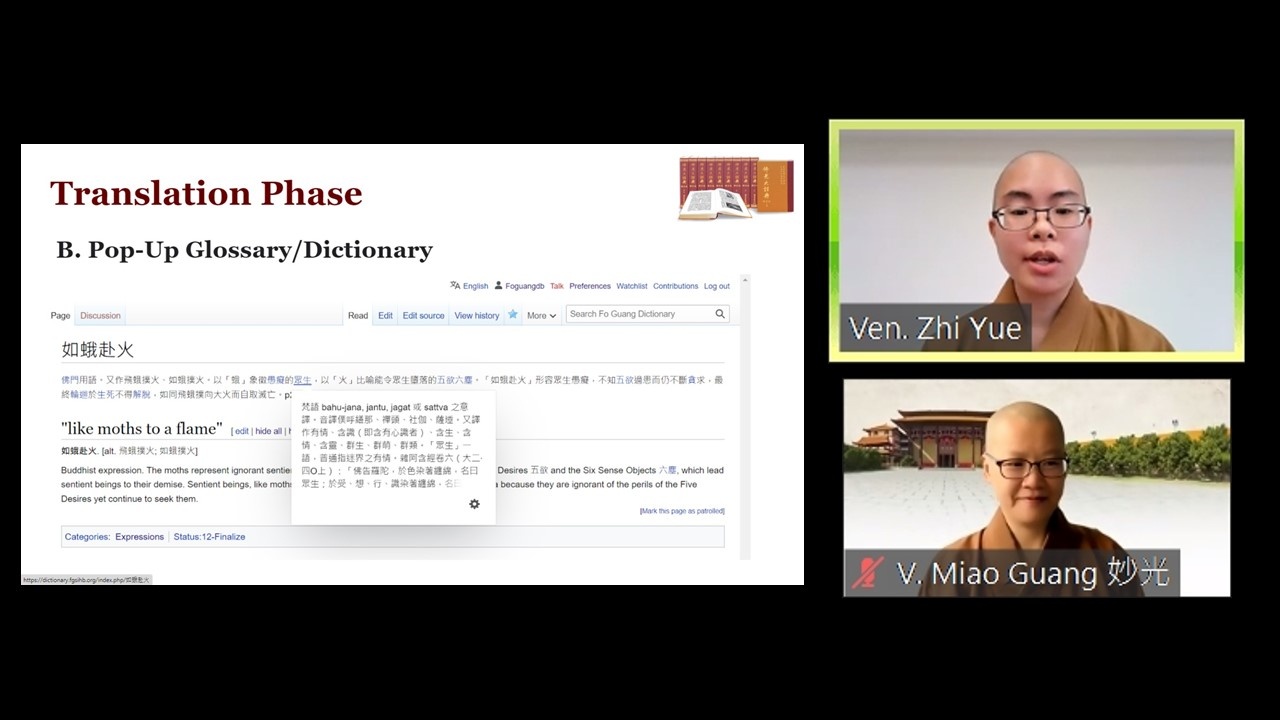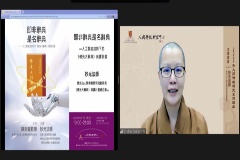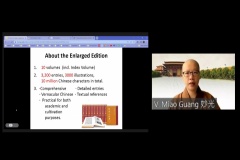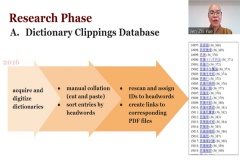Buddhist Translation in the Digital Age—Fo Guang Dictionary of Buddhism
The Pacific Neighborhood Consortium (PNC) 2022 Annual Meeting and Joint Conference was held from September 16 to 18 (US time), live at the University of Arizona, Tucson, USA, and through the ZOOM platform online. Given the theme of “The Digital World in an Age of Uncertainty: Humanizing Technology for Wellness, Resilience, and Creativity,” this three-day conference invited professors and scholars to give keynote speeches, paper presentations, workshops, and poster sessions exploring on how the development of digital learning, digital humanities, techno-cultural data and more adapt to the changes in human needs, especially in the post-pandemic era.
Dr. Lewis Lancaster—Executive academic advisor for the Fo Guang Dictionary of Buddhism Translation Project, was cordially invited to join the conference. As the Founder of the Electronic Cultural Atlas Initiative (ECAI) and Emeritus Professor of the University of California, Berkeley, he invited Venerable Miao Guang, vice chancellor of Fo Guang Shan Institute of Humanistic Buddhism and the director of the Fo Guang Dictionary of Buddhism Translation Project, as well as Venerable Zhi Yue, manager of the same project, to presented papers during the ECAI workshop “Computing, Mapping, and Imaging” on September 17 (US time). Given the main discussion on uncertainties in translation, one shared the evolution and rationale for Fo Guang Dictionary of Buddhism (hereby abbreviated as FGDB) from paper to digital, while the other showcased the optimization of the translation process and managing digital databases and resources for this dictionary since its launch in 2015.
In the first presentation “From Paper to Digital Buddhist Lexicography: Cross-Century Transformation of the Fo Guang Dictionary of Buddhism,” Venerable Miao Guang went through the development of the FGDB over thirty-odd years, from the traditional paper dictionary (with glossary) to portable CDs, PDAs, USBs and currently a mobile app that allows searches for Buddhist terminologies on the go. In the age led by artificial intelligence (AI), the Fo Guang Dictionary of Buddhism Translation Project has kept up with the times. Integrating the vast amount of Buddhist literature and reference resources such as various Buddhist and linguistic dictionaries into an online platform, this project strives to shift the translation process from paper to digital. It is expected that the translation platform “FGDB System 3.0” will go into beta for the public in 2023, featuring pop-up dictionaries, translation suggestions for names, and one-click word selection for convenient research and learning.
In the second presentation "Digital Tools for Research and the Standardization of Language in the Fo Guang Dictionary of Buddhism Translation Project," Venerable Zhi Yue introduced the process of data collection and translation, as well as the development of the online platform to stretch the abilities and enhance the benefits of technology to Buddhist research. During the research phase, the translation team compiled explanations (i.e. clippings) of the same word in various dictionaries from different languages, so that the translations of each dictionary can be readily accessible. The team then started to collate existing translations of classical Chinese quotations in Buddhist texts from dictionaries, which were later put into the Chinese-English cross-referenced citation database (with search function) using the “AwesomeTable” software. Years later, a PDF library was established to provide translators with English bibliographic and scholarly articles that could be cited. In addition, the team has also imported all the terms into Google Sheets, linked the minutes of the term, and retrieved the data using AwesomeTable, not only for the convenience of the translator but also to ensure the security of the information. Recently, the translation system has been updated to use the "MediaWiki" platform (same as Wikipedia), and through the linking function, translators can search for explanations of names in the same interface. Standardization of word choices and consistency in style and language became more transparent and noticeable.
Dr. Lancaster concluded with the importance of developing the humanities that can help people make decisions on digital databases. He mentioned witnessing the development of technology and gauging the gains and losses. He urged on evaluating the abilities of humans with current technology (e.g. AI), looking deeply into our "humanness." He also reinforced the understanding of what humans are capable of, encouraging us to develop ‘human qualities’ and to think about what human beings can contribute to in the era of digital technology.
相關圖片















